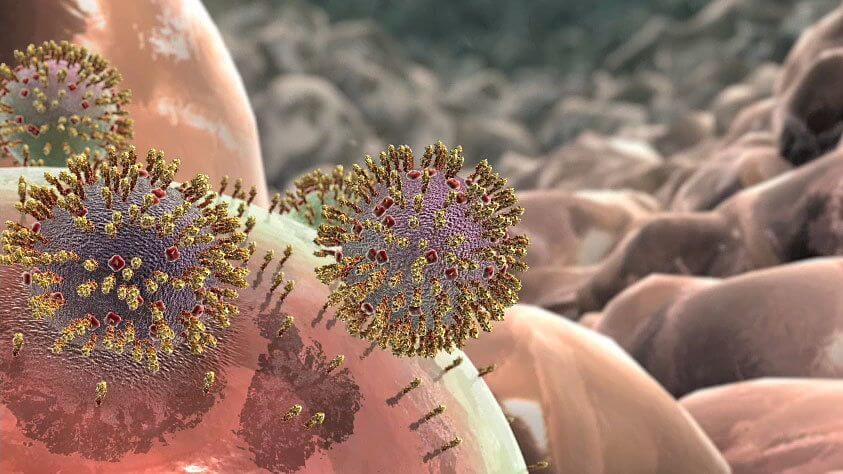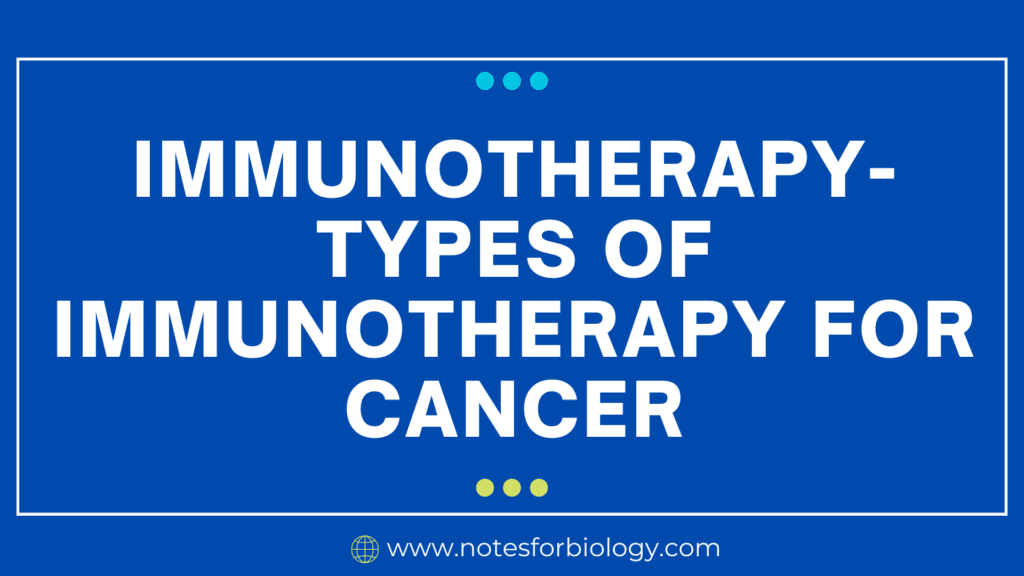Immunotherapy

One kind of cancer treatment called immunotherapy uses the body’s natural defenses against cancer cells. Immunotherapy works by stimulating or guiding the immune system to target and destroy cancer cells, in contrast to conventional therapies like chemotherapy and radiation, which attack cancer cells directly.
Cancer, a complex and multifaceted disease, has long been a formidable opponent. But in recent years, a new front has opened in the fight against this devastating illness: immunotherapy. Instead of directly attacking cancer cells, immunotherapy harnesses the power of the body’s own immune system to recognize and destroy them.
This approach, a groundbreaking development in cancer treatment, offers a more targeted and less toxic alternative to conventional therapies like chemotherapy and radiation.
Table of Contents
Types of immunotheraphy
Here’s a breakdown of the major types of immunotherapy currently employed:
Checkpoint Inhibitors
Imagine your immune system as a well-trained army, equipped to fight off invaders. But sometimes, cancer cells manage to “hide” from this army by cleverly switching off the “checkpoints” that signal the immune system to attack. Checkpoint inhibitors act like “keys” that unlock these checkpoints, allowing the immune system to recognize and eliminate cancer cells.
Two main types of checkpoint inhibitors are used:
PD-1/PD-L1 Inhibitors: These block the PD-1 receptor on T cells, preventing cancer cells from binding and suppressing the immune response.
CTLA-4 Inhibitors: These block the CTLA-4 receptor, preventing T cells from receiving signals that would shut down their activity.
CAR T-Cell Therapy
This cutting-edge approach involves engineering a patient’s own T cells to become “super soldiers” specifically programmed to target and kill cancer cells.
Here’s how it works:
Extraction: T cells are extracted from the patient’s blood.
Genetic Modification: These T cells are genetically engineered to express a chimeric antigen receptor (CAR), which allows them to recognize and bind to a specific protein on the surface of cancer cells.
Expansion: The modified T cells are grown in the lab and expanded in number.
Infusion: The engineered CAR T cells are infused back into the patient, where they attack and destroy cancer cells.
Cancer Vaccines
These vaccines, much like traditional vaccines, aim to stimulate the immune system to recognize and fight cancer cells.
There are two main types:
Therapeutic Vaccines
These are used to treat existing cancer. They present tumor-associated antigens (proteins unique to cancer cells) to the immune system, triggering an immune response to destroy the cancer.
Preventive Vaccines
These are designed to prevent the development of cancer. They target viruses or other factors known to increase the risk of cancer.
Cytokine Therapy
This approach involves using cytokines, signaling molecules that regulate the immune system.
Cytokines, such as interferon-alpha and interleukin-2, can directly attack cancer cells or boost the immune system’s ability to fight cancer.
Adoptive Cell Transfer (ACT)
ACT involves taking immune cells from a patient, growing them in the lab, and then infusing them back into the patient to attack cancer cells. This approach is similar to CAR T-cell therapy, but the T cells are not genetically engineered. Instead, they are activated and expanded in the lab, making them more potent.
Oncolytic Viruses
These viruses are designed to selectively infect and kill cancer cells, leaving healthy cells unharmed.
Oncolytic viruses can directly kill cancer cells or trigger an immune response against them.
Immunomodulators
These are agents that modify the immune system to improve its effectiveness against cancer.
Examples include:
Immune Checkpoint Blockade: These drugs block the checkpoints that cancer cells use to evade the immune system.
Toll-like Receptor (TLR) Agonists: These activate the TLRs, which are receptors on immune cells that sense pathogens and trigger an immune response.
Adjuvants: These are substances that enhance the immune response to vaccines.
Antibody-Drug Conjugates (ADCs)
ADCs are antibodies that are linked to a cytotoxic drug. The antibody targets a specific protein on cancer cells, delivering the drug directly to the tumor.
Bispecific Antibodies
These antibodies bind to both a target on a cancer cell and a target on an immune cell, bringing the immune cell into direct contact with the cancer cell.
Immunostimulants

These drugs stimulate the immune system to fight cancer.
Choosing the Right Immunotherapy
The choice of immunotherapy depends on factors like the type of cancer, the patient’s overall health, and the specific characteristics of the tumor.
Immunotherapy is not a cure-all, but it has shown remarkable promise in treating various cancers. It offers a new hope for patients, promising a future where the body’s own immune system can be the weapon of choice against this formidable foe.
While immunotherapy is a rapidly developing field, it presents a powerful tool in the fight against cancer, promising greater efficacy, fewer side effects, and a brighter future for countless patients.
Frequently Asked Questions(FAQ)
What do you mean by Immunotheraphy?
Immunotheraphy is One kind of cancer treatment called immunotherapy uses the body’s natural defenses against cancer cells. Immunotherapy works by stimulating or guiding the immune system to target and destroy cancer cells, in contrast to conventional therapies like chemotherapy and radiation, which attack cancer cells directly.
Define CAR T-Cell Therapy?
This cutting-edge approach involves engineering a patient’s own T cells to become “super soldiers” specifically programmed to target and kill cancer cells.
Related Articles

